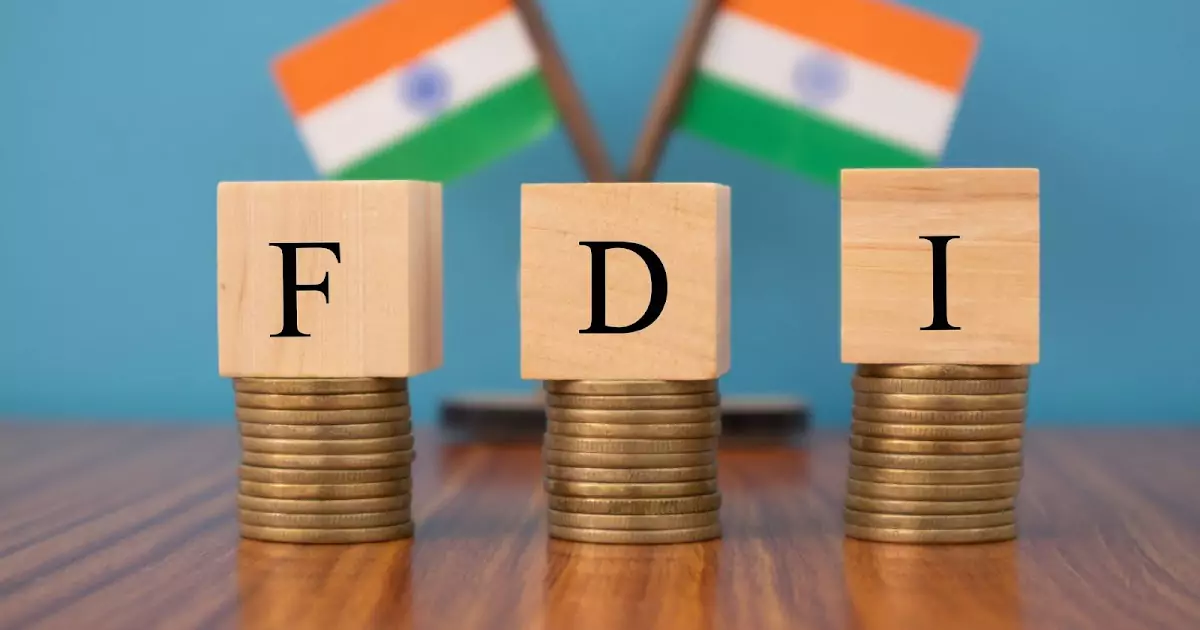FDI Shifts in Indian States
What is FDI?
Foreign Direct Investment (FDI) refers to an investment made by a foreign entity (individual, company, or government) into the productive assets or businesses of another country, with the intent of establishing lasting interest and control in the enterprise.
Key Characteristics:
- Long-term investment — Unlike portfolio investment, FDI involves active participation in the management or operations of the business.
- Control/Influence — Usually, an FDI means at least 10% ownership stake in the foreign business entity.
- Not just money — FDI can involve capital, technology transfer, management skills, and even training.
Types of FDI:
| Type | Description |
|---|---|
|
Greenfield Investment |
A foreign company builds a new facility or business from scratch in the host country. E.g., Toyota setting up a car plant in India. |
|
Brownfield Investment |
A foreign firm invests in or acquires an existing facility or company in the host country. |
|
Mergers & Acquisitions |
Buying out or merging with an existing local firm to gain market entry and control. |

FDI in India: Regulated by
- Department for Promotion of Industry and Internal Trade (DPIIT)
- RBI (under FEMA)
- Comes under automatic or government approval route based on sector.
Key Trends in FDI Distribution (2015–2025) in Indian States:
- High Regional Concentration:
- 5 States accounted for 75% to 90% of all FDI inflows.
- Dominated by Maharashtra, Delhi, Karnataka, Gujarat, and Tamil Nadu.
State-wise Performance Over the Decade
| State | FDI Share in 2015–16 | FDI Share in 2024–25 | Observations |
|---|---|---|---|
|
Delhi |
32% ($12.7 billion) |
12% ($6 billion) |
Steep decline in attractiveness. |
|
Maharashtra |
24% ($9.5 billion) |
39% ($19.6 billion) |
Highest share in 2024–25. Strong upward trend. |
|
Karnataka |
10% |
13% |
Among top 5 in 9 of last 10 years. |
|
Gujarat |
6% |
11% |
Nearly doubled its share. |
|
Tamil Nadu |
11% |
7% |
Decline in share but consistent presence. |
Key Insights
- Maharashtra & Karnataka Together Accounted for 51% of India’s FDI in 2024–25.
- Delhi's declining share marks a significant shift in investor preference.
- FDI Shift Factors:
- Investors are now prioritizing “flight to quality”: i.e., matured, stable ecosystems over new or risky ones.
- Mature Infrastructure, Industrial Corridors, and Predictable Policies attract more capital.
- Ex: Mumbai’s Financial Hub (Maharashtra) and Bengaluru’s Tech Ecosystem (Karnataka).
- Global Headwinds are pushing foreign capital towards lower-risk, proven markets within India.
The last decade reflects a clear regional preference shift in FDI—from Delhi to Maharashtra and Karnataka—driven by investor caution and preference for stable, policy-friendly environments. This trend underlines the growing importance of infrastructure, predictability, and mature ecosystems in attracting foreign capital.

















